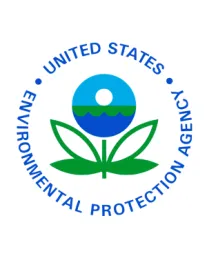On March 26, 2020, the Environmental Protection Agency announced a temporary policy of enforcement discretion for noncompliance as a result of COVID-19 or its protective measures that have been put in place. The policy is based on the recognition by EPA that worker shortage and social distancing measures may impact the ability of regulated entities to conduct and report certain monitoring activities required by federal permits, regulations, and statutes. The policy also recognizes that the pandemic and the measures put in place to address it impact the ability of the regulated entities to meet consent decree milestones and obligations, enforceable limits of air and water permits, hazardous waste management requirements, and safe drinking water requirements. This policy is retroactive to March 13, 2020, and will apply to conduct that occurs even after the policy terminates. EPA will notify the public at least seven days prior to ending this policy. Below is a summary of the major sections of the policy:
General Conditions
In general, EPA expects all regulated entities to comply with the requirements provided by their permits, regulations, and statutes. The exercise of EPA’s enforcement discretion under this policy is conditioned on the entities complying with the following:
-
“Entities should make every effort to comply with their environmental compliance obligations.
-
If compliance is not reasonably practicable, facilities with enforcement compliance obligations should:
-
Act responsibly under the circumstances in order to minimize the effects and duration of any noncompliance caused by COVID-19;
-
Identify the specific nature and dates of the noncompliance;
-
Identify how COVID-19 was the cause of the noncompliance, and the decisions and actions taken in response, including best efforts to comply and steps taken to come into compliance at the earliest opportunity;
-
Return to compliance as soon as possible; and
-
Document the information, action, or condition specified in a. through d.”
-
Routine Compliance Monitoring and Reporting by Regulated Entities
If the regulated entity cannot perform routine compliance monitoring, integrity testing, sampling, laboratory analysis, training, and reporting or certification (Routine Compliance Obligations), entities should use the existing reporting procedures under their permit or the applicable regulations or statutes. The policy provides examples of activities that fall under each category. However, if such reporting procedures are not applicable or not “reasonably practicable due to COVID-19,” the entities should maintain this information internally and provide it to EPA, the state, or tribe upon request. The policy goes on to state that EPA does not expect to seek penalties for violations of Routine Compliance Obligations, where “EPA agrees COVID-19 was the cause of the noncompliance and the entity provides supporting documentation to the EPA upon request.” However, after the policy is no longer in effect, EPA expects compliance going forward, but does not expect to require facilities to “catch up” with the missed monitoring or reporting if the requirement to do such monitoring or reporting is for less than three-month intervals. For annual or biannual reporting requirements, EPA does expect the facility to conduct late monitoring and to submit late reports.
The policy acknowledges that online training is general impacted by COVID-19 and if practicable, facilities with certified operators should maintain certification and training, but EPA acknowledges that it is more important to keep operators on the job. The policy also encourages the facilities to utilize approved electronic mechanisms of reporting and that EPA will accept a digital or electronic signature in lieu of a “wet” signature of a responsible official.
Settlement Agreement and Consent Decree Reporting Obligations and Milestones
For EPA administrative settlement agreements, if parties anticipate missing enforceable milestones, the parties should utilize the notice procedures in the agreement, including force majeure, if applicable. The policy also states that EPA intends to treat Routine Compliance Obligations in the same manner as nonagreement obligations and will not seek stipulated penalties of violations of the same as provided in the agreements.
For consent decrees with EPA and the US Department of Justice, in addition to recommending using the notice provisions in the consent decrees, the policy states EPA will coordinate with DOJ and co-plaintiffs to exercise enforcement discretion regarding stipulated penalties for the Routine Compliance Obligations. EPA also cautions that courts have jurisdiction over consent decrees and may exercise their own authority over these matters.
Facility Operations
The policy urges facilities to contact the appropriate implementing authority if as a result of COVID-19, noncompliance exists that poses an acute risk or imminent threat to human health or the environment. If such contact is made, EPA will either consult with the applicable state or tribe that implements an approved program to discuss measures to minimize or prevent the threat or will work directly with the facility when EPA has direct authority over a program.
For control, treatment, or equipment failures that may result in exceedances of enforceable limitations, the policy urges the facility to notify the appropriate implementing authority, either EPA or the state or tribe, as quickly as possible with certain information provided for in the policy.
For hazardous waste generators, if COVID-19 prevents waste from being transported off-site within the time periods required to maintain generator status, the facility should continue to label and store the waste and notify the appropriate implementing authority as provided in the policy. If so, EPA will treat the facilities as hazardous waste generators and not treatment, storage, and disposal facilities. And for Very Small Quantity Generators and Small Quantity Generators, if the thresholds of hazardous waste generated at these facilities are exceeded due to COVID-19, EPA will allow the facility to maintain its current status. The same enforcement discretion will apply to Concentrated Animal Feeding Operations. If a CAFO is unable to transfer animals off-site due to COVID-19, EPA will allow the facilities to maintain their current status.
Public Water Systems Under the Safe Drinking Water Act
If COVID-19 causes worker shortage at drinking water systems and laboratories, EPA has provided a tiered compliance monitoring hierarchy. The highest is monitoring under the National Primary Drinking Water Regulations for microbial pathogens, followed by nitrate/nitrite and the Lead and Copper Rule, and then contaminants for which the system has been out of compliance.
Critical Infrastructure
For essential critical infrastructure, the policy contemplates that EPA may consider a “more tailored short-term No Action Assurance,” if EPA determines it is in the public interest.
Other Considerations and Exclusions
This policy does not apply to criminal violations or probation conditions in criminal sentences. In screening the cases that are referred to the DOJ, EPA will distinguish unavoidable violations due to COVID-19 from intentional violations. Nor does it apply to Superfund and RCRA Corrective Action enforcement instruments, as those will be addressed in an upcoming announcement. In addition, accidental release obligations are still in place, and EPA does not intend this policy as a willingness to use enforcement discretion for noncompliance with accidental release requirements. Also, EPA’s self-disclosure program is still available and not affected by this policy.
The policy indicates that immediate action to mitigate the noncompliance and to get back into compliance along with documentation of the same will be an important factor that EPA will consider in exercising enforcement discretion under this policy. Thus, companies will need to maintain documentation of their efforts to comply.
Because many states with federally delegated programs have their own enforcement authority, the true reach of this EPA policy in those states is not clear. For this reason, this EPA policy should be a component of and not a substitute for any state policy or order that has direct authority over the regulated entity. The policy does refer to a July 11, 2019 EPA memo titled Enhancing Effective Partnerships Between EPA and States in Civil Enforcement and Compliance Assurance Work that recognizes EPA is a partner with states and, except in certain circumstances, EPA will generally defer to the states on inspection and enforcement of delegated programs. Therefore, the state will likely be the agency initially making decisions on compliance matters during this time.
However, EPA always maintains oversight of delegated states’ enforcement and monitoring programs, and this oversight requires states to meet certain inspection and compliance milestones in carrying out their responsibilities as delegated states. But under this policy, EPA believes the states should be consistent with this EPA policy and take into account the health and safety of its personnel in meeting those monitoring milestones during the COVID-19 crisis, and the policy further provides that EPA will take the pandemic into consideration in their review of the state programs.




 />i
/>i
